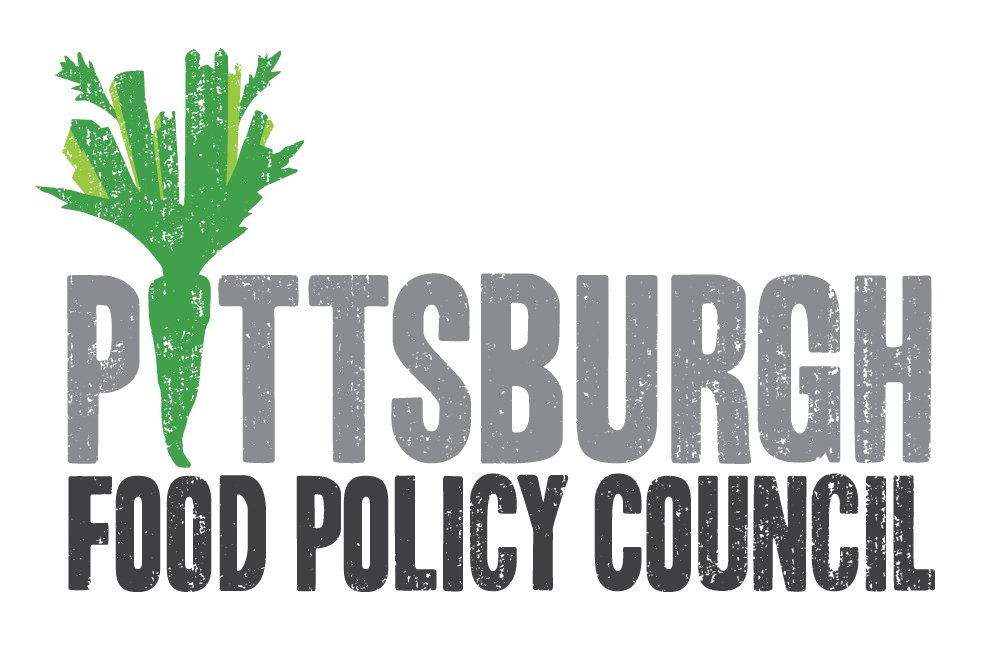Local Food Policy Collaboration Launches Pittsburgh's First Food Equity Ambassador Program
PITTSBURGH, PA (June 3, 2021) The Pittsburgh Food Policy Council (PFPC) and #PghFoodTeam is announcing the first cohort of the newly created Pittsburgh Food Equity Ambassador Program. From over 50 applications, the first Ambassador cohort of 13 residents represent all nine Pittsburgh City Council Districts.
The Pittsburgh Food Equity Ambassador program will kick off on Friday, June 4th and include a series of 9 sessions over the next six months to learn from residents about food systems challenges and triumphs and build community, while developing leadership and advocacy skills. The program seeks to grow partnerships between local governments and communities by co- designing impactful policy solutions. “The pandemic has exacerbated food insecurity in the region. This program seeks to center community voices in policymaking to address Pittsburgh’s food inequities through the building of robust community food systems and healthy communities,” says Dawn Plummer, Executive Director of the Pittsburgh Food Policy Council about the program.
The PghFoodTeam was selected as one of 20 local teams nationwide to participate in the Healthiest Cities & Counties Challenge, a program funded by the Aetna Foundation, together with the American Public Health Association (APHA) and the National Association of Counties (NACo). The Challenge seeks to significantly expand and deepen grassroots leadership and participation in policymaking on urgent matters of healthy food access and preventable chronic disease. The Aetna Foundation, which first launched the Healthiest Cities & Counties Challenge in partnership with APHA and NACo in 2016, is an independent, charitable and philanthropic affiliate of CVS Health. The PghFoodTeam, led by the Pittsburgh Food Policy Council, teamed up with leaders at the City of Pittsburgh, Allegheny County Health Department, American Heart Association-Greater Pittsburgh, and One Pennsylvania to pursue two goals. The first goal is to identify healthy food priority areas in Pittsburgh for policy action and focused collective impact. The second goal is to create a consistent mechanism to meaningfully engage residents with local government to co-design policy that positively impacts food and health equity in priority communities.
"As we know from the suffering we faced the last year, food insecurity impacts residents in every walk of life and every corner of our city. Working directly with our residents to design food policies that best serve them is precisely the right move at this juncture, and on behalf of all the PghFoodTeam partners I want to thank our Food Equity Ambassadors for their service," Mayor William Peduto said.
The nine sessions of the Food Equity Ambassador program will cover topics related to food access such as urban gardens, food apartheid, farmers markets, and transportation that are determined by program participants. Ambassadors will be invited to share their experiences and develop solutions to food access barriers with support from local leaders that include the City of Pittsburgh staff. With grant support provided by the Challenge via the Aetna Foundation, Ambassadors will be compensated for their participation and will have significant opportunities to shape the direction of the program. The Ambassadors, ranging from high school student to elders, include;
- Carol Gerner (District 1, Northside)
- Tacumba Turner Jr. (District 2, Sheraden)
- Nathaniel Palmer (District 3, Oakland)
- Lisa Reihl (District 4, Beecheview)
- Christina Mays-Walker (District 5, Hazelwood)
- Giavanna Gibson (District 5, Greenfield)
- Marcia Scott (District 6, Hill District)
- Teaira Collins (District 6, Hill District)
- Abigail Gildea (District 7, Bloomfield)
- Manuel Michaca (District 8, Shadyside)
- Betty Lane (District 9, Larimer)
- Anna Sekine (District 9, Garfield)
- Zinna Scott (District 9, Homewood)
This inaugural cohort will set the stage for what we hope will be a permanent pathway for residents to collaborate with local government and regional leaders in order to accelerate systems change and policy action on food and health equity in the city of bridges.
If you would like more information about this program, please call Olivia Carter at 412-406-6061 or email olivia@pittsburghfoodpolicy.org.
